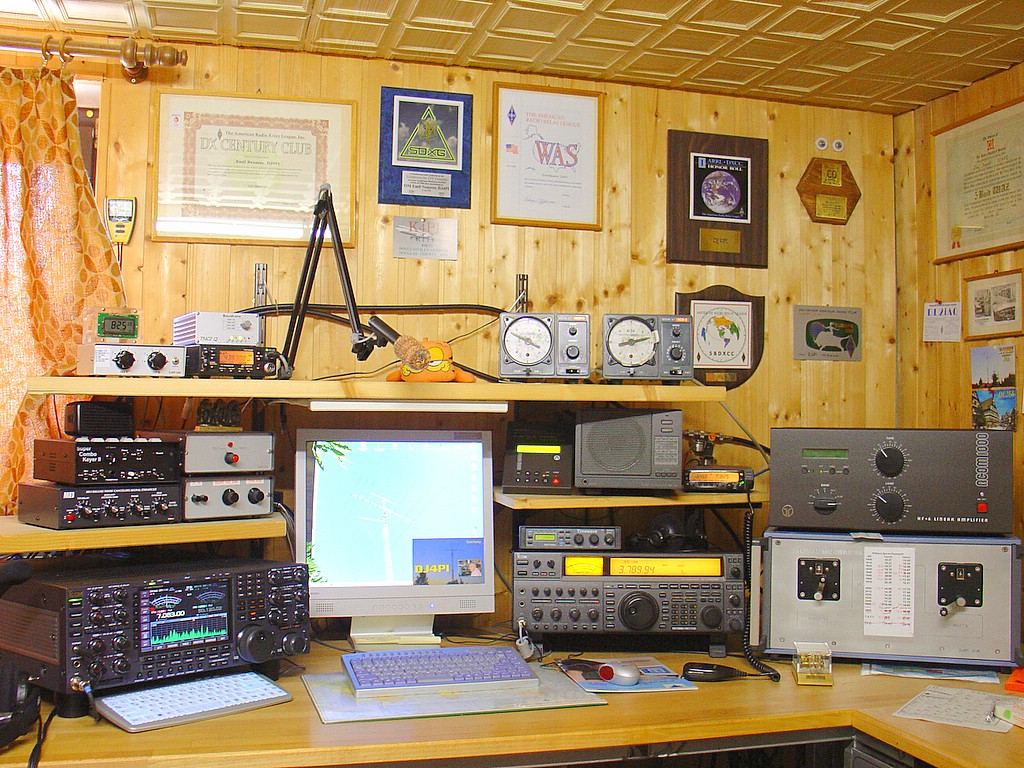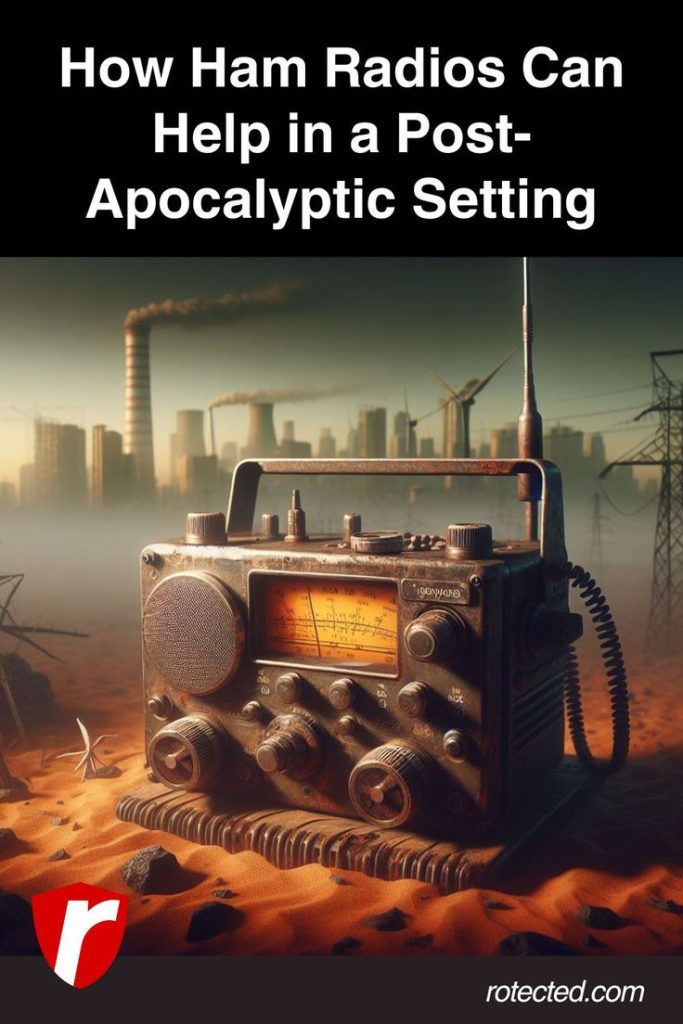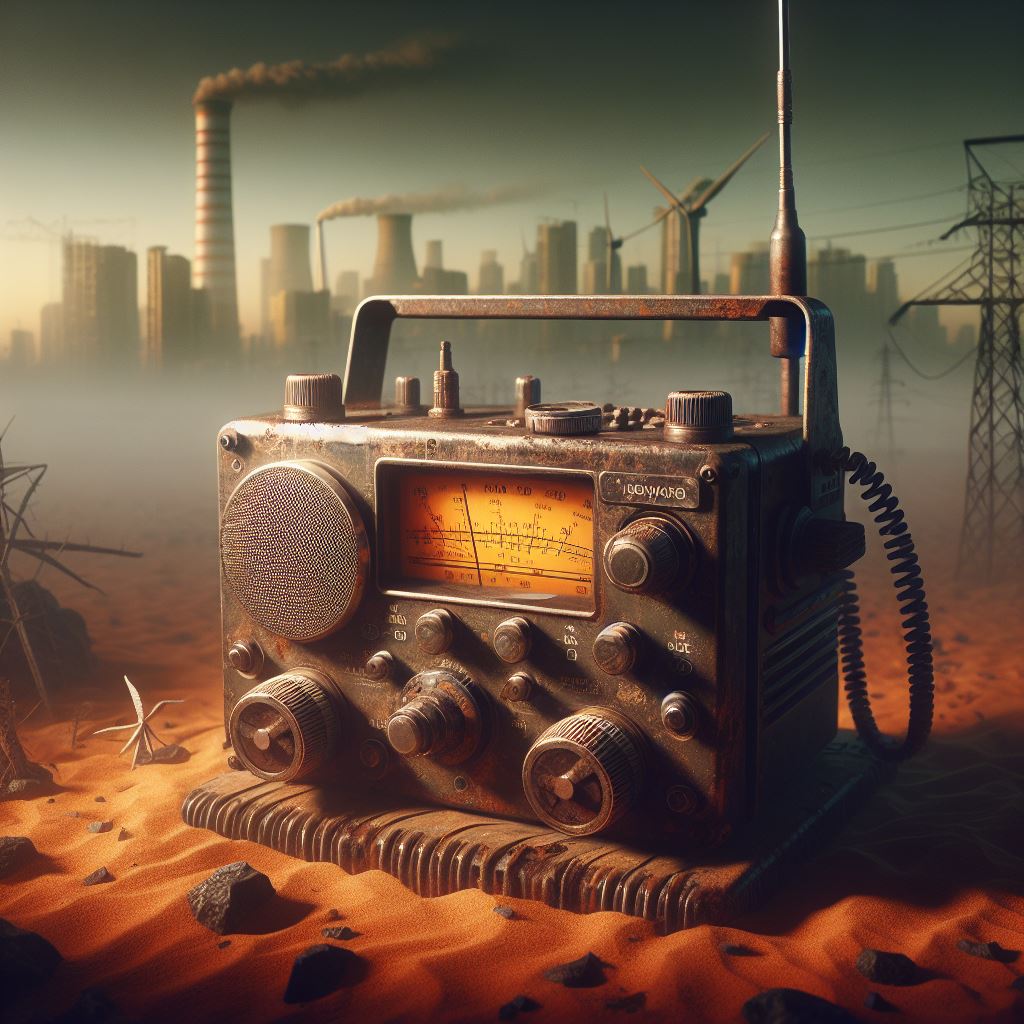Imagine a world where traditional means of communication vanish, leaving us in a post-apocalyptic scenario. In such moments, when cell towers and Wi-Fi networks become relics of the past, there exists a hero that continues to thrive: the ham radio.
Ham radios, also known as amateur radios, aren’t just gadgets for hobbyists. They’re resilient communication tools that have stood the test of time and disaster. They’re like the secret language of survivalists, connecting people across vast distances when other methods fail.
In this eye-opening guide, we’ll delve into the intriguing world of ham radios and how they become vital lifelines in a post-apocalyptic world. From their origins and simple mechanics to the crucial role they play in staying connected when everything else goes silent.
Understanding Ham Radios

What are Ham Radios?
Ham radios, or amateur radios, are two-way radio communication devices used by licensed operators. Unlike regular radios, which operate on specific frequencies for broadcasting, ham radios allow users to communicate with each other over a range of radio frequencies. They’re not just for local chatter; they enable communication across cities, states, and even countries, linking operators globally.
How Do They Work?
At their core, ham radios transmit and receive radio waves, converting voice or data into electromagnetic signals. These signals travel through the air and are received by another ham radio set to the same frequency. This communication occurs through designated bands allocated by regulatory bodies, allowing licensed operators to engage in conversations, exchange information, or provide assistance.

Why Are They Different?
What sets ham radios apart is their versatility and range. They’re not tied to a single frequency or purpose. Ham operators can explore various frequencies, experiment with different antennas, and even build their equipment. This adaptability makes them incredibly useful during emergencies or when traditional communication networks fail.
Moreover, ham radio enthusiasts go through licensing processes to operate these devices. This licensing ensures that operators understand radio protocols, operating regulations, and best practices, contributing to an informed and responsible community.
As you can see, it’s a bit more complicated than your basic walkie talkie used for emergencies and outdoor adventures.
Resilience in Post-Apocalyptic Settings
Practicality Amid Chaos
In a hypothetical post-apocalyptic scenario where traditional communication infrastructure has collapsed, ham radios emerge as beacons of hope. These devices, unaffected by the downfall of modern communication networks, retain their functionality, offering a lifeline amidst chaos.
Picture a world where power grids fail, internet connectivity vanishes, and cell towers become relics. In this dire setting, ham radios shine as dependable tools for communication. Their ability to operate off-grid, using alternative power sources like batteries or solar panels, ensures continuous connectivity when other means fail.
Recommended HAM Radio: President Lincoln II Plus 10 and 12 Meter Ham Radio
Bridging Communication Gaps
The significance of ham radios in such a world lies in their capacity to bridge vast communication gaps. Amateur radio operators, equipped with their devices and knowledge, form networks that span regions and even continents. These networks facilitate the exchange of crucial information, aid coordination efforts, and provide support among scattered survivors.
Their long-range communication capabilities allow for relaying messages, coordinating rescue missions, sharing vital survival information, and offering a semblance of community in an otherwise disconnected world. The adaptability of ham radios to operate in adverse conditions, coupled with the resourcefulness of licensed operators, fosters a resilient communication network essential for survival.
A Testament to Preparedness
The practicality and significance of ham radios in a post-apocalyptic world highlight the importance of preparedness. For enthusiasts and survivalists, understanding and incorporating ham radios into emergency preparedness plans become pivotal. These devices not only offer a means of communication but also symbolize resilience, adaptability, and the human spirit to connect and survive in the face of adversity.
Tips for Building a Post-Apocalyptic Communication Kit
1. Selecting the Right Equipment
Start by choosing reliable and durable ham radios. Opt for models with a range suitable for your needs and consider features like battery life, portability, and ease of use. Additionally, invest in quality antennas, spare batteries, solar chargers, and a sturdy carrying case to protect your equipment.
2. Acquiring Licensing and Training
Obtaining the necessary licensing is crucial. Learn about regulations, operating procedures, and emergency protocols. Engage in practice sessions, join local ham radio clubs, and seek mentorship to enhance your skills and understanding of operating the equipment effectively.
3. Emergency Communication Plan
Develop a communication plan outlining how you’d utilize your ham radios in emergencies. Establish communication protocols, designated frequencies, and contacts within your network. Plan for scenarios such as natural disasters, medical emergencies, or community support efforts.
4. Supplementary Gear
Consider adding supplementary gear to your kit, such as first aid supplies, maps, compasses, and weatherproof notebooks. These items complement your communication tools and contribute to a comprehensive survival kit.
5. Regular Maintenance and Testing
Regularly maintain and test your equipment to ensure it remains in optimal condition. Practice using the radios, familiarize yourself with different frequencies, and perform routine checks to guarantee their functionality when needed most.
Conclusion: The Enduring Value of Ham Radios

In an ever-changing world, the enduring value of ham radios in post-apocalyptic settings cannot be overstated. These communication devices, rooted in simplicity and resilience, transcend technological dependencies, offering lifelines when traditional means fail.
The hypothetical scenario of a post-apocalyptic world emphasizes the practicality and significance of ham radios as vital tools for survival. Their ability to bridge communication gaps, form resilient networks, and serve as symbols of preparedness underscores their enduring relevance.
Ham radios embody not just communication devices but symbols of human resilience, adaptability, and the enduring spirit of connectivity. As we navigate an uncertain future, their presence in emergency preparedness kits represents a commitment to staying connected, informed, and prepared in the face of adversity.
With that said, the story of ham radios in a post-apocalyptic world serves as a testament to their enduring value—a value that remains steadfast amidst an ever-evolving landscape of uncertainties.




